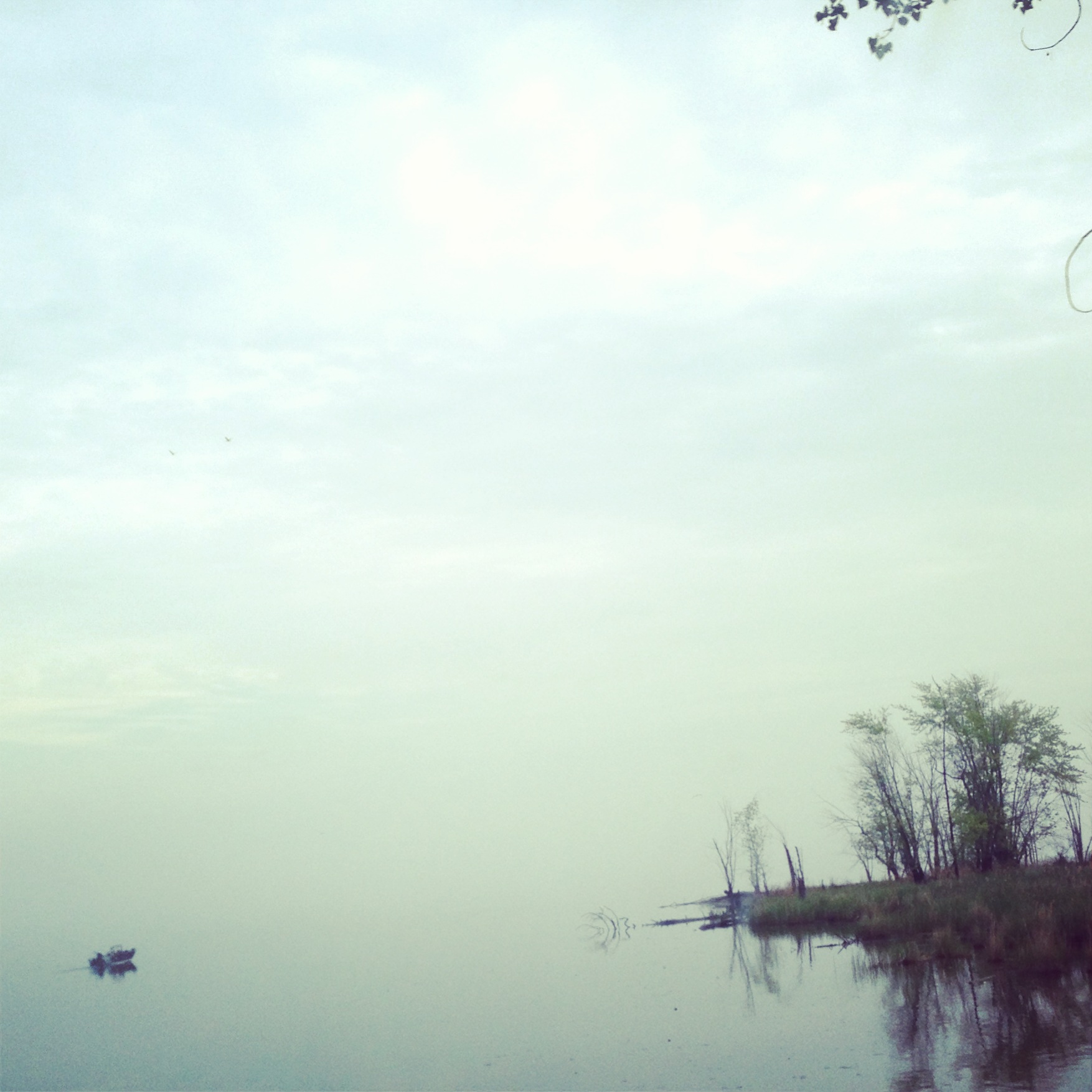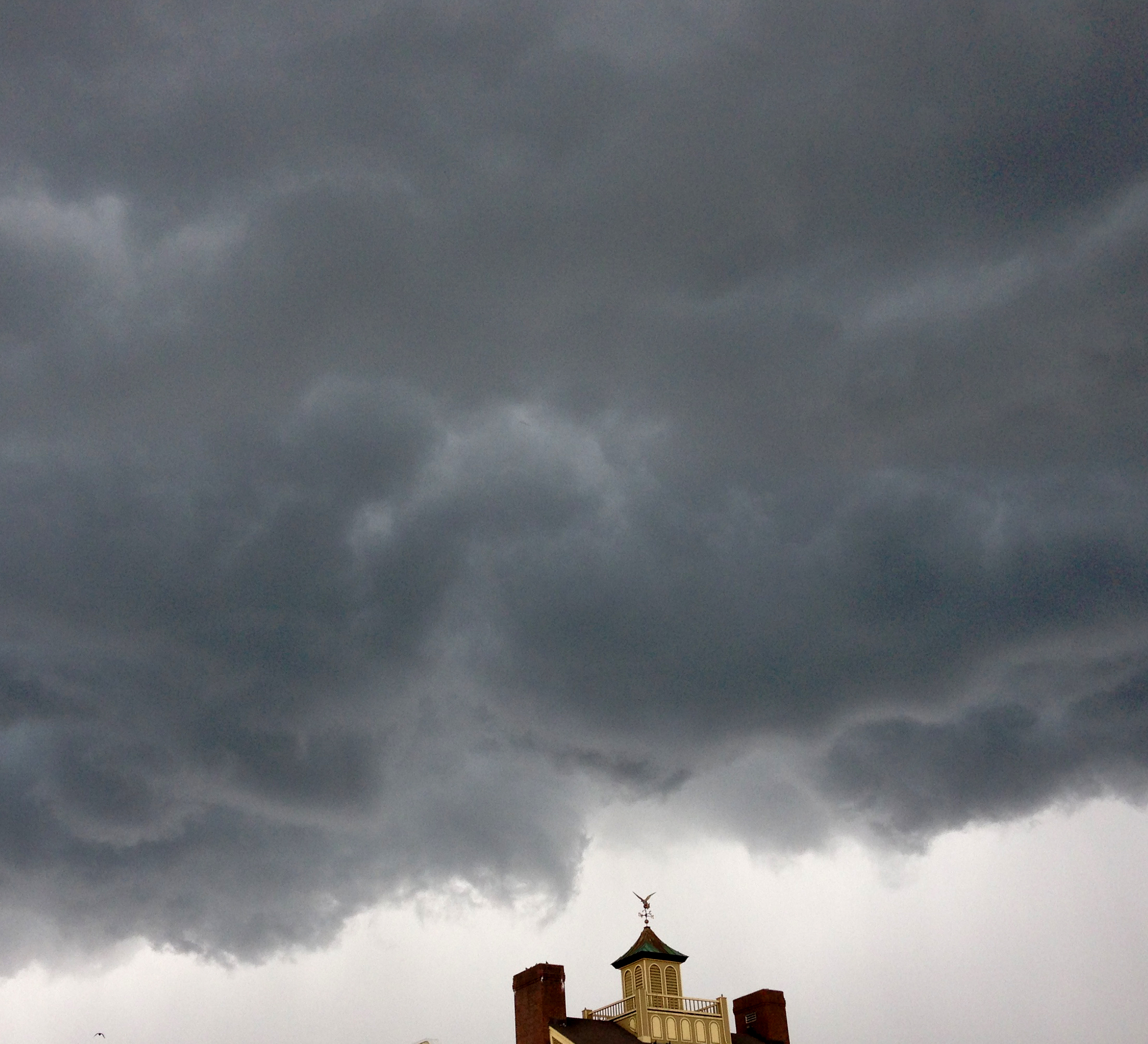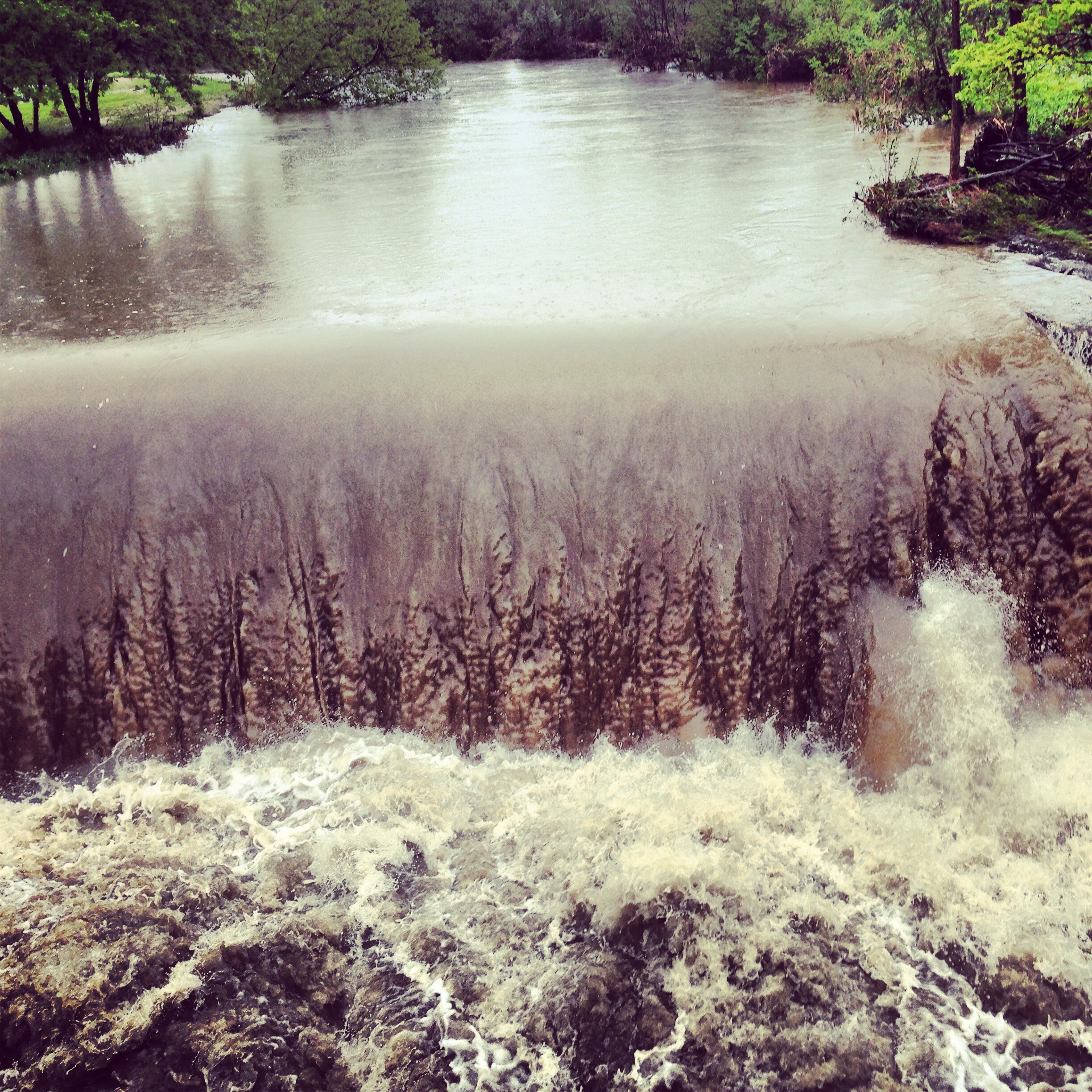The things we cannot know



"What’s your book about?" he asks, standing awkwardly at my side at a party full of writers. I’ve never met him before. It’s always the hardest thing for me to say what it’s about. How can a handful of sentences ever really convey the way everything I care about is there on the page. How to summarize something, when everything in my life went into its making?
Later I am standing with my back against the farm sink in the kitchen with a glass of rose in my hand, and I am listening to a friend talk about about her fear of dying. It occurs to me then that somewhere along the way I’ve stopped talking about dying; about what it means to me and how it's shaped me, although I don’t remember when I stopped. Now, suddenly, I know that the time is finally right to begin writing story of my dad the real way, in a book. Not only him, but everything. The way all of my life began with the convergence of theirs, and even what came before them. The way faith and timing, love and wanderlust all can be traced with a fingertip along the blue, slightly raised veins in my wrists, like rivers moving from the source. An inheritance of story. A torn roadmap of loving and believing.
I’m talking with a friend who has the most perfect bangs in the world. Straight across her forehead like Amelie, and I watch as she almost winces when she says, “How can it just be it? How can our whole life be a timeline, and then just nothing?” Then she says, "I'm terrified of dying because of that. Because of not knowing."
I nod.
The bigness of what happens after this is something we all must face. We become something or nothing. We feel the truth, or the absence of it. We know, or cannot know.
Our mortality hangs in the air.
We’re fleeting. We're scraps, star dust, uncertain particles. That’s one way of seeing. Another is how my father saw it from his deathbed, hunched among the covers, pale, morphine patches on his belly as he said, “I’ll keep doing my work from the other side.” S glimmer of a smile, like sudden flight of birds moving across his face.
“I know,” I said without hesitation.
A lifetime of conversations with that man left me feeling held in the weft of spirit worlds. Still, I was too heartbroken to write more than the raw edges of story down. Too lost in the spinning of my own world without a North to know really where to begin, or that I would begin at all, some day, after a rainstorm as I am now.
Things are uncertain always in a world where physics apply. But what of spirit?
I’d love to hear what you think.
It rained all day in fits and starts; the clouds gathering in a rush, the sky suddenly dark. At the party people read brilliant prose that was raw and hilarious and heartbreaking all at once, and someone sang “Imagine” and someone else played the piano and I sat against the wall with my dying cell phone skimming through texts from T and wishing I be only right there without distraction. Then it became clear: our road was flooded out.
My cell battery was dead leaving the party, and the night was black without stars. Every dirt road’s neck seemed to be broken at the lowest point. Sudden flash floods had swallowed every stream bed; every culvert washed away.
You never really can imagine the future until you’re there. Until you’re standing at the torn edge of macadam where the road used to continue and now it doesn’t and instead there is a ten foot drop and a raging river in its path. I bite my lip. I’m freezing, still wearing flip flops from when I left the house in the morning under humid skies and temperatures in the seventies. Now the mercury is falling fast.
Two old men join me, shoulders hunched under slickers. They are neighbors familiar enough that we know each other’s silhouettes though we’ve never said hello; living as they do, a good two miles down the dirt road from where our house sits perched high and dry among dandelion fields and maple woods. Now they shine big flashlights at the raging river, share their iPhones, offer their houses to me for shelter, shake their heads.
I can’t get ahold of T. He’s already trying to meet me, likely at the place in the road where the service dips. I leave a message. There’s no way to cross. Nothing to do but retrace my path. Back to Burlington, the clocks closing in on a new day. Nearly every road I take becomes a back track; every low point is overwhelmed. The water rages like something hungry and wild. It devours the bedrock, tears away at the pavement, tosses logs and branches and old farm machinery in its wake.
Eventually I make my way back. Call a friend, show up at her doorstep after midnight. She puts clean sheets on the air mattress, hugs me, goes back to bed, and I spend the night fitfully, rain still falling.
The next day, I leave town in the afternoon. I buy groceries, and hope for lucky breaks. Bacon for the weekend, fruit, eggs, milk. At the place where the road was a river, the water is low now, and there are two huge excavators pushing gravel bigger than my fists into the wound. Truck after truck comes, backs in with precision, dumps another load, leaves. The men smoke cigarettes and wear steel toed boots and cotton sweatshirts. They use a sign langue specific to their trade: back her up, lower her down, all set, stop, go. Watching them work with little words and absolute efficiency I am beyond grateful. I want to cry. I want hug them and offer hot coffees and donuts. Instead, T meets me on a mountain bike, carrying the backpacks we used for hiking in college. He crosses in between the excavators, wraps his arm around my shoulder.
We fill the backpacks the groceries and my work bag. Cross back over, and in another handful of minutes I’m there, the fire bright, the kids hugging me, the dog licking my hands, and everything feels certain with the familiarity of home. I am exhausted beyond reason, as though the tenuousness of everything---us, and this, and life, and the gashed and then repaird roadway---is heavy with a weight I can’t perceive.
“Mama, what’s something no one can picture?” Bean asked me on the way to school earlier in the day when the sky was still soft, and the air was warm and damp and smelled of lilacs.
“I don’t know,” I said. “What?”
“Nothing,” he said, seriously, softly. “Nothing. You can’t picture that. It’s the opposite of anything. And every time we try to picture something--we’re picturing something. But nothing... we just can’t picture that.”
